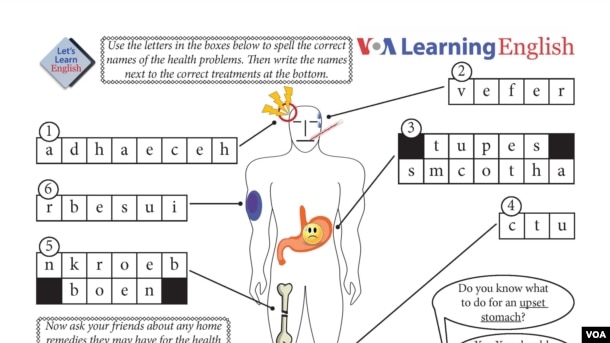For Fun - 'Bloopers'
Sometimes we do not remember what to say. Or sometimes we are laughing about a funny event. Watch the video above to see these mistakes, or "bloopers."Review Quiz
In this quiz, you can test your listening skills. Watch a short video and answer each question.Lesson Review
Did you miss a lesson? Look back and see if you remember these grammar points and topics.Lesson 25: Watch Out!
Grammar focus: Modals: should; ought to
Topics: Warnings: Be careful, Watch out; Recommending products, giving advice
Learning Strategy: Cooperate
Speaking & Pronunciation Focus: past tense contractions; Making recommendations using "should"
Lesson 26: This Game Is Fun!
Grammar focus: modal "ought to;" irregular past tense verbs
Topics: U.S. Presidents; Americana symbols
Learning Strategy: Make Associations
Speaking & Pronunciation Focus: Pronouncing "ought to" in fast speech; Giving warnings with the expression "look out;" Symbols associated with American Presidents
Lesson 27: I Can't Come In
Grammar focus: Irregular past tense verbs
Topics: Asking about health problems; giving advice for health problems
Learning Strategy: Analyze Information
Speaking & Pronunciation Focus: Wh-questions and Yes/No question intonation; Groups of verbs with irregular past tense forms
Lesson 28: I Passed It!
Grammar focus: Imperative verb forms, Past tense of BE
Topics: Giving a reason or excuse, Apologizing
Learning Strategy: Self Talk
Speaking & Pronunciation Focus: Imperative verbs, Extending the word "well"
Lesson 29: A Long Time Ago
Grammar focus: Review simple past and irregular past tense verbs; Using adjectives with correct adjective placement; Infinitives: to read, to be; to work
Topics: Describing physical states & emotions
Learning Strategy: Personalize
Speaking & Pronunciation Focus: Using adjectives; Back-channeling noises: Um-Hum, Uh-Huh
Now it's your turn. How is your progress with Let's Learn English? Tell us about where you live and how often you do these lessons. Send us an email or write to us in the Comments section below or on our Facebook page to let us know what you think of these lessons.
